#international day of education
Explore tagged Tumblr posts
Text
On this International Day of Education we honor the woman who founded what would become the first university
Fatima bint Muhammad al-Fihriyaal-Qurashiyya (Arabic: فاطمة بنت محمد الفهرية القرشية),[1] known in shorter form as Fatima al-Fihriya[2] or Fatima al-Fihri,[3] was an Arab woman who is credited with founding the al-Qarawiyyin Mosque in 857–859 CE in Fez, Morocco. She is also known as Umm al-Banīn ("Mother of the Children").[4] Al-Fihriya died around 880 CE.[4][5] The al-Qarawiyyin Mosque subsequently developed into a teaching institution, which became the modern University of al-Qarawiyyin in 1963.[6] Her story is told by Ibn Abi Zar' (d. between 1310 and 1320) in The Garden of Pages (Rawd al-Qirtas) as founder of the mosque.[7] Since she was first mentioned many centuries after her death, her story has been hard to substantiate and some modern historians doubt she ever existed
See rest of article
#January 24#International Day of Education#Fatima bint Muhammad al-Fihriyaal-Qurashiyya#فاطمة بنت محمد الفهرية القرشية#the al-Qarawiyyin Mosque#Morocco#few#Umm al-Banīn (“Mother of the Children”)#Women in history#Women in education
15 notes
·
View notes
Text
How to protect and, ideally, elevate human agency in an age of technological acceleration and expanding automation?

Agenda programme of the International Day of Education 2025.
Morning plenary sessions Room I – Watch online
10:00 – 10:15 - Welcome remarks
10:15 – 10:45 - Ideas in dialogue: AI and education: Preserving human agency in a world of automation
10:45 – 11:20 - Fireside chat: AI integration in schools: Lessons from early adopters
11:45 – 13:00 - High level panel: Preserving human agency in an AI era: Stakeholder responses
Breakout sessions 14:30 – 16:00
1: Enhancing decision-making in education: How can we balance AI automation with human judgment? Room IX – Register to attend online
2: How can the agency of teachers be cultivated in AI adoption? Room IV
3: What does the rise of AI in higher education mean for human agency? Room VIII
4: Skilling for the AI era: What does the future demand? Room XII – Register to attend online
Room VIII – Register to attend online
Closing plenary session: Towards human-centred AI in education 16:15 – 17:00 Room I – Watch online

International Day of Education 2025.

#ai in education#technological advancement#international day of education#artificial intelligence and education#Plenary sessions#ai skills#automation
0 notes
Text

"International Day of Education"#trending#viral
we will delve into the history of the International Day of Education, the role it plays in advocating for educational reform, and real-world initiatives that make a difference. Education is essential not only for personal development but also for fostering peaceful societies and driving economic growth. We'll highlight inspiring stories from around the globe that showcase how education is transforming lives and communities.
Call:7799799221
Website:www.manasadefenceacademy.com
#internationaldayofeducation, #educationforall, #qualityeducation, #inclusiveeducation, #educationalequity, #transformativeactions, #globaleducation, #humanrightseducation, #educationreform, #january24, #educationalinitiatives, #sustainabledevelopment, #lifelonglearning, #equalopportunity, #inspiringstories, #communityeducation, #roleofeducation, #importanceofeducation, #educationcounts, #supporteducation
#International Day of Education#education for all#quality education#inclusive education#equitable education#transformative actions#global education#human rights education#education reform#January 24#educational initiatives#sustainable development#lifelong learning#equal education opportunity
0 notes
Text
The International Day of Education, celebrated annually on January 24th, serves as a global reminder of education’s power to transform lives and societies. This day underscores the importance of ensuring inclusive, equitable, and quality education for everyone—no matter their background or circumstances.
#education for all#Educational Equity#future of learning#global development#inclusive education#International Day of Education#quality education
0 notes
Text
Women's Not So Distant History
This #WomensHistoryMonth, let's not forget how many of our rights were only won in recent decades, and weren’t acquired by asking nicely and waiting. We need to fight for our rights. Here's are a few examples:

📍 Before 1974's Fair Credit Opportunity Act made it illegal for financial institutions to discriminate against applicants' gender, banks could refuse women a credit card. Women won the right to open a bank account in the 1960s, but many banks still refused without a husband’s signature. This allowed men to continue to have control over women’s bank accounts. Unmarried women were often refused service by financial institutions entirely.
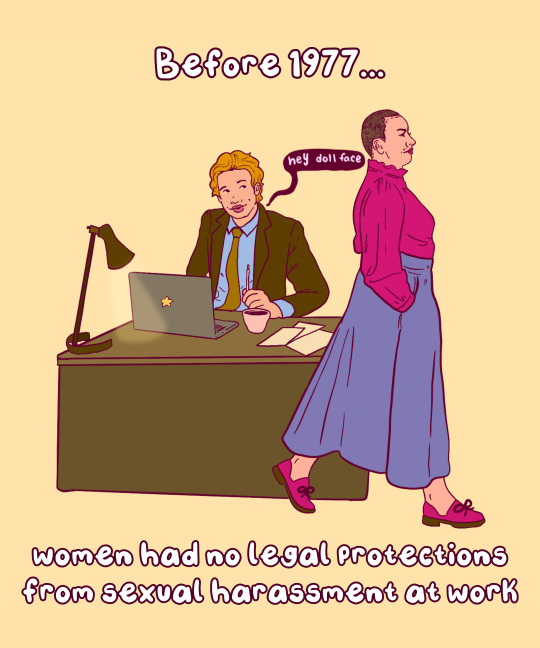
📍 Before 1977, sexual harassment was not considered a legal offense. That changed when a woman brought her boss to court after she refused his sexual advances and was fired. The court stated that her termination violated the 1974 Civil Rights Act, which made employment discrimination illegal.⚖️
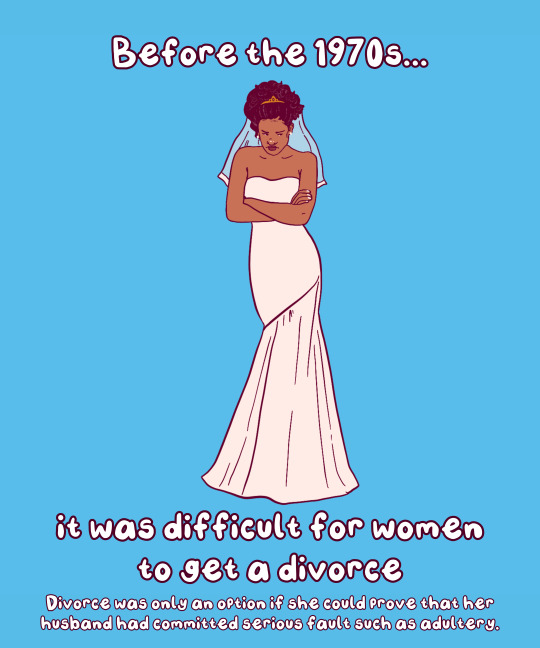
📍 In 1969, California became the first state to pass legislation to allow no-fault divorce. Before then, divorce could only be obtained if a woman could prove that her husband had committed serious faults such as adultery. 💍By 1977, nine states had adopted no-fault divorce laws, and by late 1983, every state had but two. The last, New York, adopted a law in 2010.
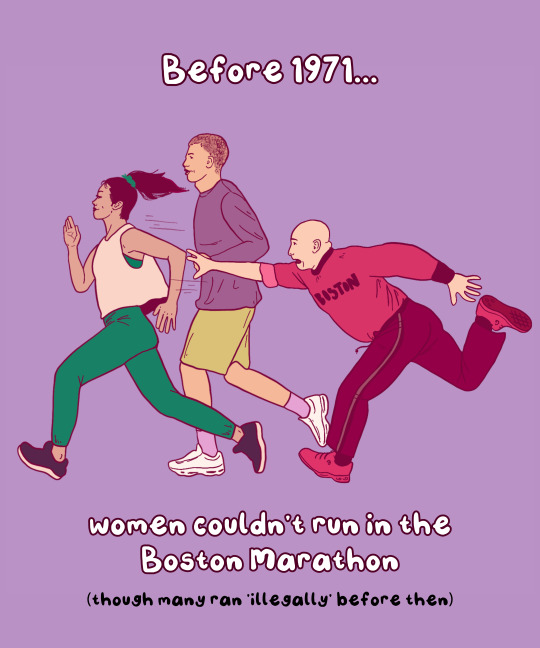
📍In 1967, Kathrine Switzer, entered the Boston Marathon under the name "K.V. Switzer." At the time, the Amateur Athletics Union didn't allow women. Once discovered, staff tried to remove Switzer from the race, but she finished. AAU did not formally accept women until fall 1971.

📍 In 1972, Lillian Garland, a receptionist at a California bank, went on unpaid leave to have a baby and when she returned, her position was filled. Her lawsuit led to 1978's Pregnancy Discrimination Act, which found that discriminating against pregnant people is unlawful
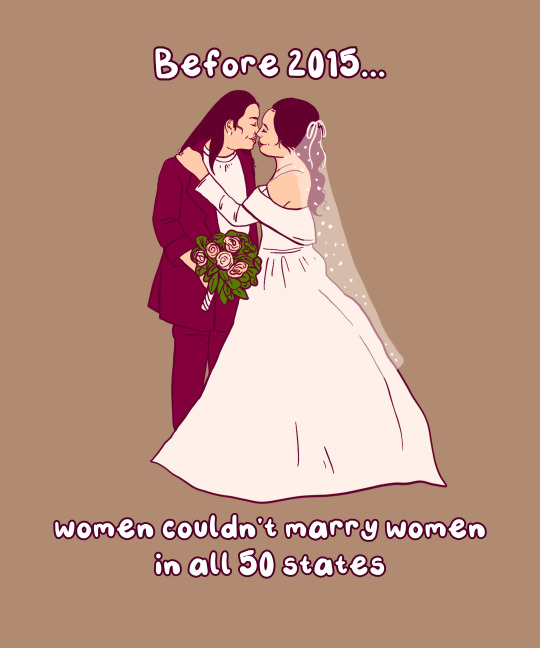
📍 It wasn’t until 2016 that gay marriage was legal in all 50 states. Previously, laws varied by state, and while many states allowed for civil unions for same-sex couples, it created a separate but equal standard. In 2008, California was the first state to achieve marriage equality, only to reverse that right following a ballot initiative later that year.

📍In 2018, Utah and Idaho were the last two states that lacked clear legislation protecting chest or breast feeding parents from obscenity laws. At the time, an Idaho congressman complained women would, "whip it out and do it anywhere,"
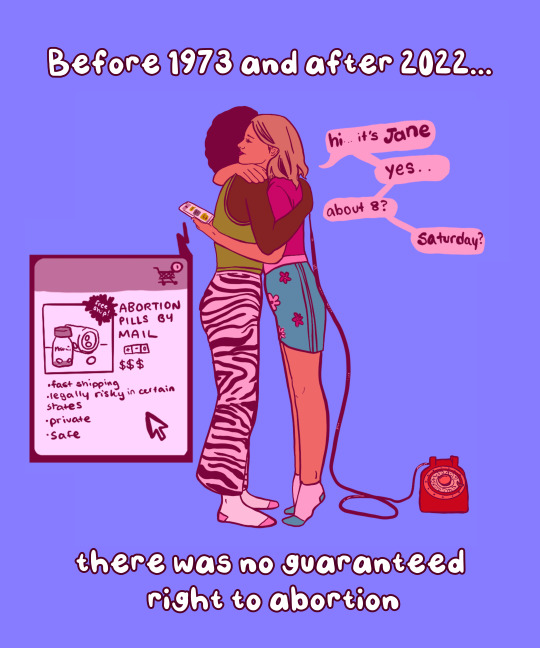
📍 In 1973, the Supreme Court affirmed the right to safe legal abortion in Roe v. Wade. At the time of the decision, nearly all states outlawed abortion with few exceptions. In 1965, illegal abortions made up one-sixth of all pregnancy- and childbirth-related deaths. Unfortunately after years of abortion restrictions and bans, the Supreme Court overturned Roe in 2022. Since then, 14 states have fully banned care, and another 7 severely restrict it – leaving most of the south and midwest without access.
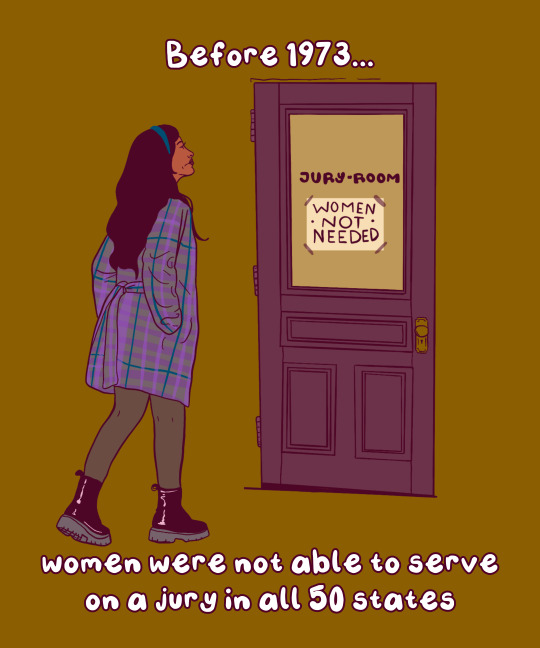
📍 Before 1973, women were not able to serve on a jury in all 50 states. However, this varied by state: Utah was the first state to allow women to serve jury duty in 1898. Though, by 1927, only 19 states allowed women to serve jury duty. The Civil Rights Act of 1957 gave women the right to serve on federal juries, though it wasn't until 1973 that all 50 states passed similar legislation

📍 Before 1988, women were unable to get a business loan on their own. The Women's Business Ownership Act of 1988 allowed women to get loans without a male co-signer and removed other barriers to women in business. The number of women-owned businesses increased by 31 times in the last four decades.
Free download
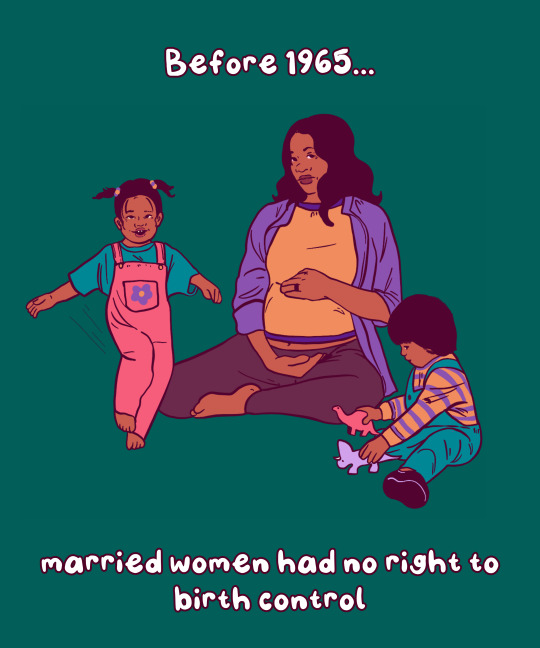
📍 Before 1965, married women had no right to birth control. In Griswold v. Connecticut (1965), the Supreme Court ruled that banning the use of contraceptives violated the right to marital privacy.
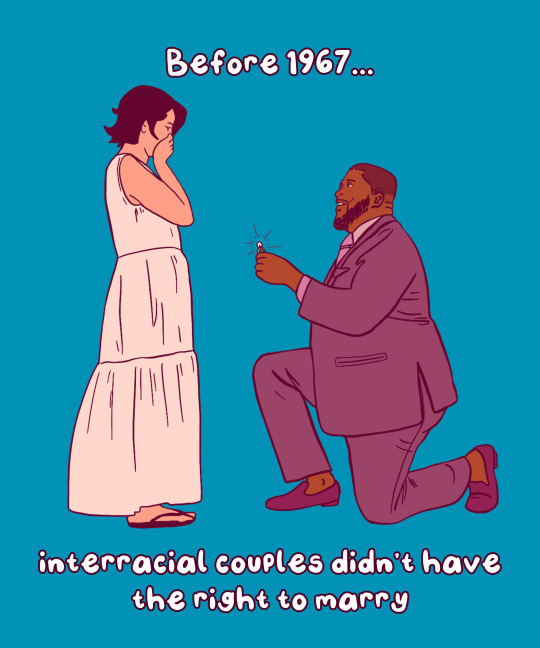
📍 Before 1967, interracial couples didn’t have the right to marry. In Loving v. Virginia, the Supreme Court found that anti-miscegenation laws were unconstitutional. In 2000, Alabama was the last State to remove its anti-miscegenation laws from the books.

📍 Before 1972, unmarried women didn’t have the right to birth control. While married couples gained the right in 1967, it wasn’t until Eisenstadt v. Baird seven years later, that the Supreme Court affirmed the right to contraception for unmarried people.
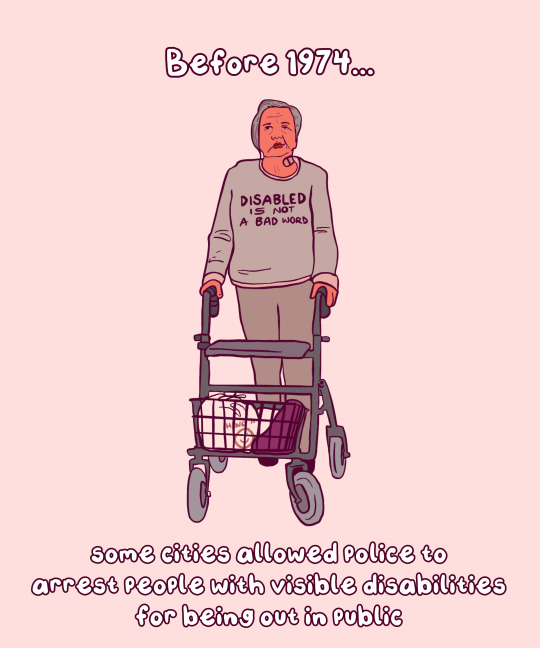
📍 In 1974, the last “Ugly Laws” were repealed in Chicago. “Ugly Laws” allowed the police to arrest and jail people with visible disabilities for being seen in public. People charged with ugly laws were either charged a fine or held in jail. ‘Ugly Laws’ were a part of the late 19th century Victorian Era poor laws.

📍 In 1976, Hawaii was the last state to lift requirements that a woman take her husband’s last name. If a woman didn’t take her husband’s last name, employers could refuse to issue her payroll and she could be barred from voting.

📍 It wasn’t until 1993 that marital assault became a crime in all 50 states. Historically, intercourse within marriage was regarded as a “right” of spouses. Before 1974, in all fifty U.S. states, men had legal immunity for assaults their wives. Oklahoma and North Carolina were the last to change the law in 1993.
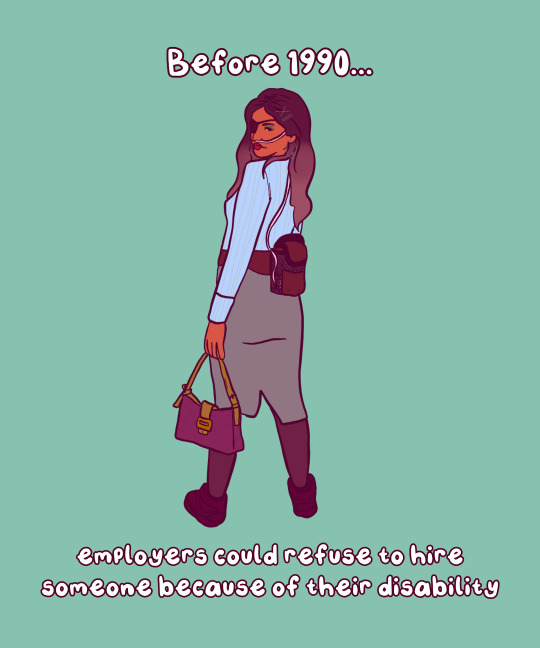
📍 In 1990, the Americans with Disability Act (ADA) – most comprehensive disability rights legislation in U.S. history – was passed. The ADA protected disabled people from employment discrimination. Previously, an employer could refuse to hire someone just because of their disability.
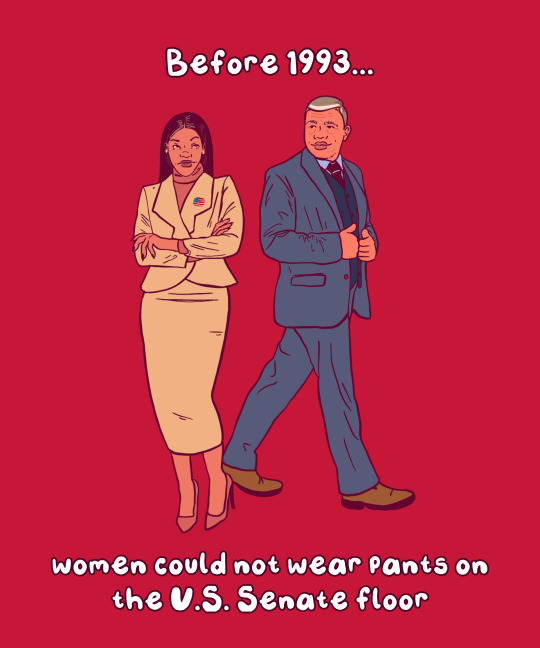
📍 Before 1993, women weren’t allowed to wear pants on the Senate floor. That changed when Sen. Moseley Braun (D-IL), & Sen. Barbara Mikulski (D-MD) wore trousers - shocking the male-dominated Senate. Their fashion statement ultimately led to the dress code being clarified to allow women to wear pants.

📍 Emergency contraception (Plan B) wasn't approved by the FDA until 1998. While many can get emergency contraception at their local drugstore, back then it required a prescription. In 2013, the FDA removed age limits & allowed retailers to stock it directly on the shelf (although many don’t).
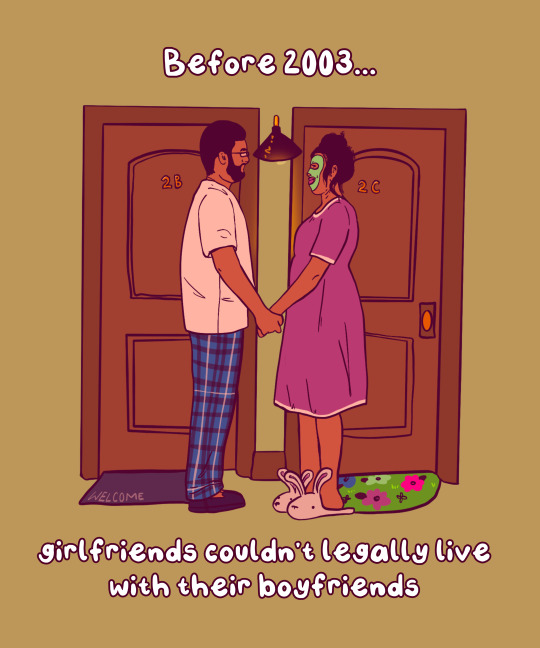
📍 In Lawrence v. Texas (2003), the Supreme Court ruled that anti-cohabitation laws were unconstitutional. Sometimes referred to as the ‘'Living in Sin' statute, anti-cohabitation laws criminalize living with a partner if the couple is unmarried. Today, Mississippi still has laws on its books against cohabitation.
#art#feminism#women's history#women's history month#iwd2024#international women's day#herstory#educational#graphics#history#70s#80s#rights#women's rights#human rights
17K notes
·
View notes
Text
Celebrating the Power of Knowledge: International Day of Education

Education is a powerful force that transcends borders and empowers individuals to shape their futures. Recognizing the pivotal role that education plays in fostering sustainable development, the United Nations declared January 24th as the International Day of Education. This global observance aims to celebrate the importance of education and highlight its transformative impact on individuals and societies.
The Significance of International Day of Education:
As per the UNESCO report, around 258 million children and youth still do not attend school and about 617 million children and adolescents still do not attend schools. More than 387 million children of primary school age (56%) and 230 million adolescents of lower secondary school age (61%), do not achieve minimum proficiency levels in reading and maths.
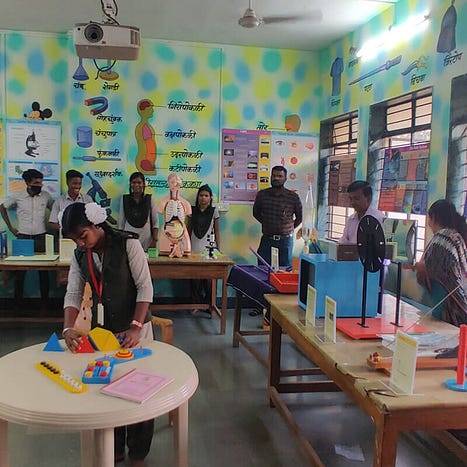
Equal Access to Education: The day emphasizes the need for equal access to quality education. Millions of children around the world still face barriers to education, including poverty, discrimination, and conflict. By promoting inclusive and equitable education, the International Day of Education seeks to break down these barriers and create opportunities for every child to learn and thrive.
Education for Sustainable Development: Education is a key component of sustainable development. It equips individuals with the knowledge and skills needed to address global challenges, such as climate change, poverty, and inequality. By fostering a sense of responsibility and global citizenship, education empowers people to actively contribute to building a more sustainable and just world.
Technology and Innovation in Education: The digital age has transformed the education landscape, offering new possibilities for learning. The International Day of Education encourages the integration of technology and innovation into educational practices, making education more accessible and engaging. Online learning platforms, virtual classrooms, and other technological advancements have the potential to reach learners in even the most remote areas.
Empowering Women and Girls: Gender equality is a crucial aspect of education. The day highlights the importance of equal educational opportunities for girls and women. Education empowers women to break the cycle of poverty, participate in decision-making processes, and contribute to the overall development of their communities.
The International Day of Education serves as a call to action for governments, educators, and communities to prioritize and invest in education. It is a day to celebrate the achievements in the field of education, recognize the challenges that still exist, and reaffirm our commitment to ensuring that every individual has the opportunity to learn and grow. By investing in education, we invest in the future, creating a world where knowledge is a powerful force for positive change.
Child Help Foundation with its crowdfunding partner Filaantro strives for quality education. It has been helping many rural village families’ children have proper education with advanced technologies like practical labs, demo products and Smart Board facilities. In total, Child Help Foundation and Filaantro have reached out to 4,82,051 children with its Quality Education programme.
#filaantro#crowdfunding#fundraising#raise funds#nonprofits#charity#education#donate#donations#volunteering#International Day of Education
0 notes
Text



Today is 24th of January.
Today is International Day of Education, National Peanut Butter Day, National Compliment Day.
0 notes
Text
Hey y'all. It's International Holocaust Awareness day Both of these books changed me. Consider reading them or please share for someone else who might. It's never a bad thing to learn more.
Inside the Gas Chambers: Eight Months in the Sonderkommando of Auschwitz by Slomo Venezia This is one of the only books I've found that touches on the living conditions and viewpoint of a Jew from Greece. Reading it, the author felt like a friend. It was horrifying.
Nazi Doctors: Medical Killing and the Psychology of Genocide this book explained people were taught to completely separate Jews from being human in people's minds in the years leading up to the Holocaust- especially in the medical field. It has interviews with some of the doctors who did these things. The site for the books also has an archive of images, films, objects, publications, recorded sounds and documents. You can find information on many communities. Thank you
#international holocaust remembrance day#holocaust#shoah#shoah mention#jumblr#I know I don't really share stuff like this often on my art blog but it's important to me.#if you end up buying either book and reading it I'll literally mail you stickers for free as a reward I'm not even joking haha T_T#i have recommended these before on my side blog...but i really want people who dont already have an education or interest in these things#to see too..#resources
2K notes
·
View notes
Text
🗣️ College students: Do you want to inspire curiosity in a captivating environment where science, community, and communication intertwine? Become a Museum intern! Applications for the Museum Education Experience Program (MEEP) are open through August 23. Apply today!
#science#amnh#museum#nature#natural history#animals#fact of the day#did you know#college#internship#interns#new york city#nyc life#science communication#stem#college student#education#students
2K notes
·
View notes
Note
Today is the 80 year anniversary of the freeing of auschwitz
We can’t forget the holocaust and we can’t let it happen again
Here is the official website of the Auschwitz memorial and museum. Today, 27th January 2025, marks not only the 80th anniversary of the freeing of about 7 thousand prisoners from the camp but also the International Holocaust Remembrance Day as declared by the UN in 2005.
I have copied an excerpt from the website about the number of victims below but would also urge everyone to read up more about the history of Auschwitz and the atrocities committed there. I have seen a horrifying amount of Holocaust inversion and denial in the last few months especially and the one of the first things we can do to combat this antisemitism is to inform ourselves and others about the Holocaust. Never again is now.
"The number of victims
Until the end of its existence, the Auschwitz camp was above all a place of extermination. In other camps, the death rate was lowered from 1943 in an effort to conserve the labor force. In Auschwitz, however, where new transports, mostly of Jews, arrived continuously and kept the camp supplied with laborers, human life never had any great significance.
Historians estimate that around 1,1 million people perished in Auschwitz during the less than 5 years of its existence. The majority, around 1 million people, were Jews. The second most numerous group, some 70 thousand, was the Poles, and the third most numerous, about 21 thousand, the Roma and Sinti. About 15 thousand Soviet POWs and some 12 thousand prisoners of other ethnic backgrounds (including Czechs, Belorussians, Yugoslavians, French, Germans, and Austrians) also died there.
In view of the role that it played in the realization of the Nazi extermination plans, Auschwitz is known around the world as a symbol of genocide perpetrated by Nazi Germany, and especially of the destruction of the Jews."
- Auschwitz Memorial and Museum
95 notes
·
View notes
Text
Spotlighting the dynamic interplay between AI and education.

Organized by UNESCO and the UN Group of Friends for Education and Lifelong Learning, the International Day of Education 2025 will delve into the transformative role of Artificial Intelligence (AI) in reshaping education and learning. The event will spotlight the dynamic interplay between AI and education—how AI technologies are revolutionizing teaching and learning practices, while education, in turn, serves as a guiding force to ensure that AI is ethical, inclusive, and aligned with human values. More particularly, the event aims to:
Examine new possibilities offered by AI, especially for teaching, learning, assessment and educational administration.
Promote the development of critical AI literacies by equipping educators and learners with the competencies needed to understand, use and influence AI technologies, in line with the UNESCO AI competency frameworks for teachers and students.
Ensure that AI complements, rather than replaces, the essential human elements of learning, including the cultivation of in-person relationships and emotional intelligence.

#education#group of friends#ecosoc chamber#unhq#ai and education#AI technologies#International Day of Education#24 january#Artificial Intelligence and Education: Challenges and Opportunities
0 notes
Text

Understanding bisexuality is knowing bisexuality is not a phase or a stepping stone. It's a valid sexual orientation, representing attraction to more than one gender. However, bisexual individuals often face discrimination, not just from the straight community, but sadly, more often from within the LGBTQ+ community as well. This is called biphobia and it leads to bierasure. The invisible battle of Biphobia is the fear or hatred of bisexual people, often manifesting as harmful stereotypes, prejudice, and discrimination. Bierasure, on the other hand, is the tendency to ignore, remove, falsify, or reexplain evidence of bisexuality in history, academia, news media, and other primary sources. How can people help to end biphobia and bierasure as allies, we can help fight to end these harmful behaviors. Here's how:
1. Educate Yourself and Others: Learn about bisexuality, the challenges faced by bisexuals, and the harmful effects of biphobia and bierasure. Share your knowledge with others, especially those who may hold misconceptions about bisexuality.
2. Speak Up: Don't stay silent when you witness biphobia or bierasure. Challenge harmful stereotypes and stand up for bisexual individuals in both the straight and LGBTQ+ communities.
3. Support Bisexual Individuals: Be there for your bisexual friends and family members. Let them know that you see them, you support them, and you're fighting for them.
4. Promote Bisexual Visibility: Share and celebrate stories, art, and media by and about bisexual individuals. This can help combat bierasure by showing that bisexual people exist and their experiences are valid.
So join the bisexual community in this fight we need to act urgently to end biphobia and bierasure amongst other things as well. It's time to stand up, speak out, and show your support for the bisexual community. Share this post, start a conversation, and let's make a difference together for a better place for bisexuals.
#bisexuality#lgbtq community#lgbtq#bi#support bisexuality#pride#bi tumblr#bisexuality is valid#lgbtq pride#bi pride#bisexual#bisexual support#international day against homophobia transphobia and biphobia#end biphobia#end bierasure#biphobia#biphobic#bi erasure#bierasure#bisexual erasure#powerfully#queer nation#bisexual nation#bisexual education#bisexual community#bi community#bisexual pride#bi ally#bisexual allies#bisexual ally
60 notes
·
View notes
Text
Me as a kid, age 13: and im gonna make an oc whos super special and has amazing powers and goes on adventures with the ninja and -
Me now, in college: what if the ninja had a sleazy PR manager
#i long for the days when i could come up with fun ocs#now all my ocs are like. dr saunders's unpaid intern. the unpaid intern's weird stoner gf. the ninjas' morally questionable pr manager#my hcs are all like this too unfortunately#what does ninjagos education system look like? whats the world politics? what kind of disaster relief protocols exist?#i am so boring now 😭😭😭😭#this is what college does to you folks#ninjago#destiny post
198 notes
·
View notes
Note
Your election post was the most holier-than-thou, performative, bullshit I’ve ever read. Get a grip and get some self awareness.
i will take "missed the entire point" for 500, alex
#y'all abstainers and third party voters are gonna have so much blood on your hands if this goes sideways#and a lot of that blood will be that of palestinians#but please go ahead and ignore all logic#so over it dude#tired of being nice election day is half over anyway#if you abstained or voted third party#you did the wrong thing#you did a bad thing#hope the moral high ground was worth it bud#perceived moral high ground i should say#all it actually is is selfish performative bullshit#and i am sick to fucking death of explaining why#when trans people are criminalized for existing#when palestine is flattened into nothing but debris#when people with uteruses are forced into pregnancy#and criminalized for miscarriages or still births#when lgbt protections are repealed#when every criminal in office gets a pardon#when education falls apart#when healthcare gets even worse#when our allies turn against us#when we get involved in international conflicts we have no business in#when people die#i hope you remember today and the choices you made#and i hope you never get rid of your guilt#if he wins and the world falls apart i hope you feel the weight of your mistake until the day you fucking die#you make it so hard to believe in the good in people#and i am so tired#diz says stuff
21 notes
·
View notes
Text
This Day in Buster…August 21, 1936
Buster Keaton deserved a medal for keeping on going when faced with making the short films he referred to as “cheaters” when he once presided over his own studio. “Blue Blazes" is released by Educational Pictures.
#this day in buster#buster keaton#blue blazes#educational pictures#1930s#talkies#vintage hollywood#ibks#the international buster keaton society#buster keaton society#the damfinos#damfino#damfamily
21 notes
·
View notes
